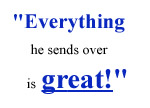 Bi-Mart president Jack Phelan will retire Feb. 3, after leading the firm for 30 years.
Bi-Mart president Jack Phelan will retire Feb. 3, after leading the firm for 30 years.
Recalling Bi-Mart's
Beginnings
President Jack Phelan Retires
By Mark Ziegler
The Monthly
Pay 'n Save Corporation
In 1955, Jack Phelan and some friends gathered in a Yakima, Wash., restaurant for a cup of coffee and a few minutes of conversation.
Thirty years later, that coffee break ranks as one of the most successful in Northwest retailing history.
Jack, president and a founder of Bi-Mart, as well as a corporate vice president, has announced his retirement from the firm effective Feb. 3. Marty Smith, Bi-Mart's general merchandise manager and a 20-year Bi-Mart veteran, has been named vice president and general manager of the 33-store discount chain, a corporate subsidiary based in Eugene, Ore. Marty will assume Jack's responsibilities.
Jack was working in the real estate and insurance business in Yakima when he and other local businessmen thought up the idea of a membership discount store after reading in the Wall Street Journal about a similar operation for federal employees in Southern California.
One man challenged the rest to put their money where their mouths were. Each gave $50 to send two of the group to visit "FedCo" in California, and they cut a deck of cards to see who would go. Jack drew one of the high cards.
"You know, it's funny, but I don't even remember what card I drew," Jack said. "Among us were a barber, lawyer and other businessmen. That was the first time we had ever heard of that type of operation. The idea of offering goods at way below retail prices almost appealed more to us as consumers than it did as businessmen, because none of us were what you would call merchants."
Jack was impressed with FedCo's membership feature, the lack of outside signs and the store's closed-door concept.
"It was like a speakeasy -- you had to show your card, they'd push a button, a buzzer sounded and they let you in."
When he returned to Yakima, Jack gave an enthusiastic report on the revolutionary concept. Each man contributed $700 to start the store and the group took out a bank load. The store opened later in 1955.
Jack remembers many initial problems.
"First of all, we had full-time jobs, so the store was open only from 6 p.m. - 9 p.m., five days a week. We'd be down there with our wives, stocking shelves, working the cash register and helping customers.
"And we had trouble getting factory representatives to sell to us because we were new. We had to get our merchandise from 'jobbers' (wholesalers), which was much more difficult."
The firm also ran into legal questions regarding the Fair Trade Laws, which restricted retailers from undercutting competition by selling below manufacturers' suggested list prices. Bi-Mart's membership requirement, at a cost of $2, basically was a device to circumvent the laws.
"After about four years, suits were filed against us by four major manufacturers, with five others waiting in the wings," Jack said.
The laws were later ruled unconstitutional and Bi-Mart has retained the membership device. It gives the chain a means of determining where customers are and information to make expansion decisions. It also gives members a sense of belonging and is a convenient source of identification -- Bi-Mart's bad check losses are extremely low.
"And all those major manufacturers now sell direct to us," Jack noted.
Expansion was slow in the beginning. It was seven years before the second store opened in Eugene in 1962, and that almost didn't occur.
"A Columbus Day storm severely damaged the building and filled it with mud and water," Jack said. "Fortunately, the store opened Nov. 11, just in time for the Christmas season. If we hadn't opened then, we would have gone broke."
Eventually, Bi-Mart expanded to 13 stores, but the firm was hard pressed for additional capital and in 1975, it was sold to the Corporation.
"We couldn't expand by ourselves," Jack said. "It turned out to be a good deal for both parties. We've more than doubled our stores since the sale."
Jack attributes Bi-Mart's success to the infusion of capital from Pay 'n Save; a policy of "the best possible merchandise at the lowest possible prices"; basing profits on volume sales; store hours of 11 a.m.-8 p.m., which reduce overhead by using only one shift of workers; and marketing a varied product mix, thus making the chain "less susceptible to the cyclical nature of the economy."
Intending to retire five years ago, Jack said he couldn't talk himself into it because he was "having too much fun." His current plans are to relax for a few months and then reenter business in a part-time capacity. He and his wife Marion plan to move from Eugene to Portland, Ore., in the near future.
Jack will remain a Bi-Mart man.
"I considered moving to Seattle, but ruled it out because there are no Bi-Mart stores there."





